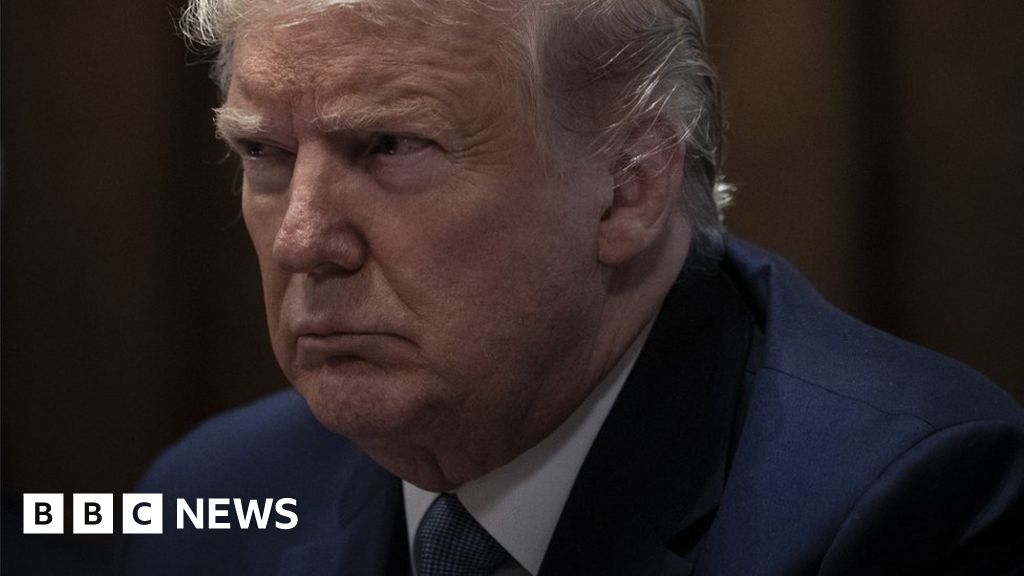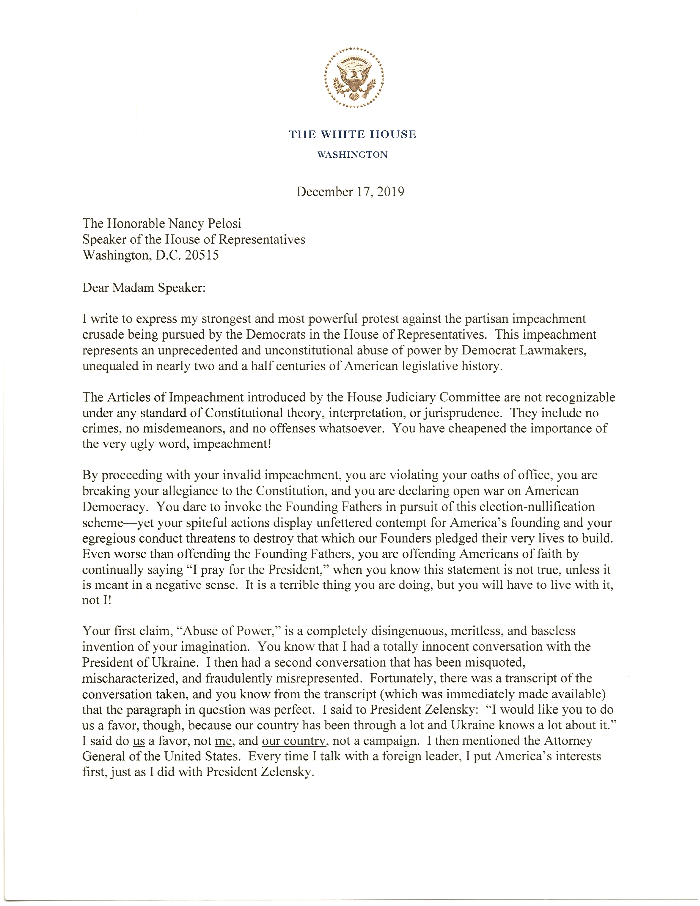Presidential historian Kendrick Clements, a professor emeritus at the University of South Carolina, said he's been struck by Trump's blanket refusal to co-operate with the investigation or to provide requested information to investigators.
Clements said this could have long-term consequences. "If that refusal stands, it would mean that a president is immune from prosecution for illegal acts and that Congress's investigative powers are severely curtailed," he said.
He said the deepening polarization of U.S. politics has not yet ended all co-operation between the parties on issues, but he said there is an increasing risk of the legislative branch of the U.S. government becoming completely paralyzed — which would leave the president a freer hand to do whatever he pleases.
He said it's hard to predict future historians' views, because they will depend on still-unknown developments in American democracy.
For example, he said a Senate acquittal might be seen someday as "the moment when the U.S. turned away from democracy toward authoritarianism." On the other hand, he said, should the Senate agree to oust Trump, it's also possible that future historians might declare this is when the balance of power between the branches of government tipped toward congressional dominance. While he said he hopes the U.S. avoids either extreme, he's a little worried about the state of affairs.
"The edge of the precipice is frighteningly close, and the short-term outlook for a happy new year doesn't seem very bright."

 www.bbc.com
www.bbc.com






